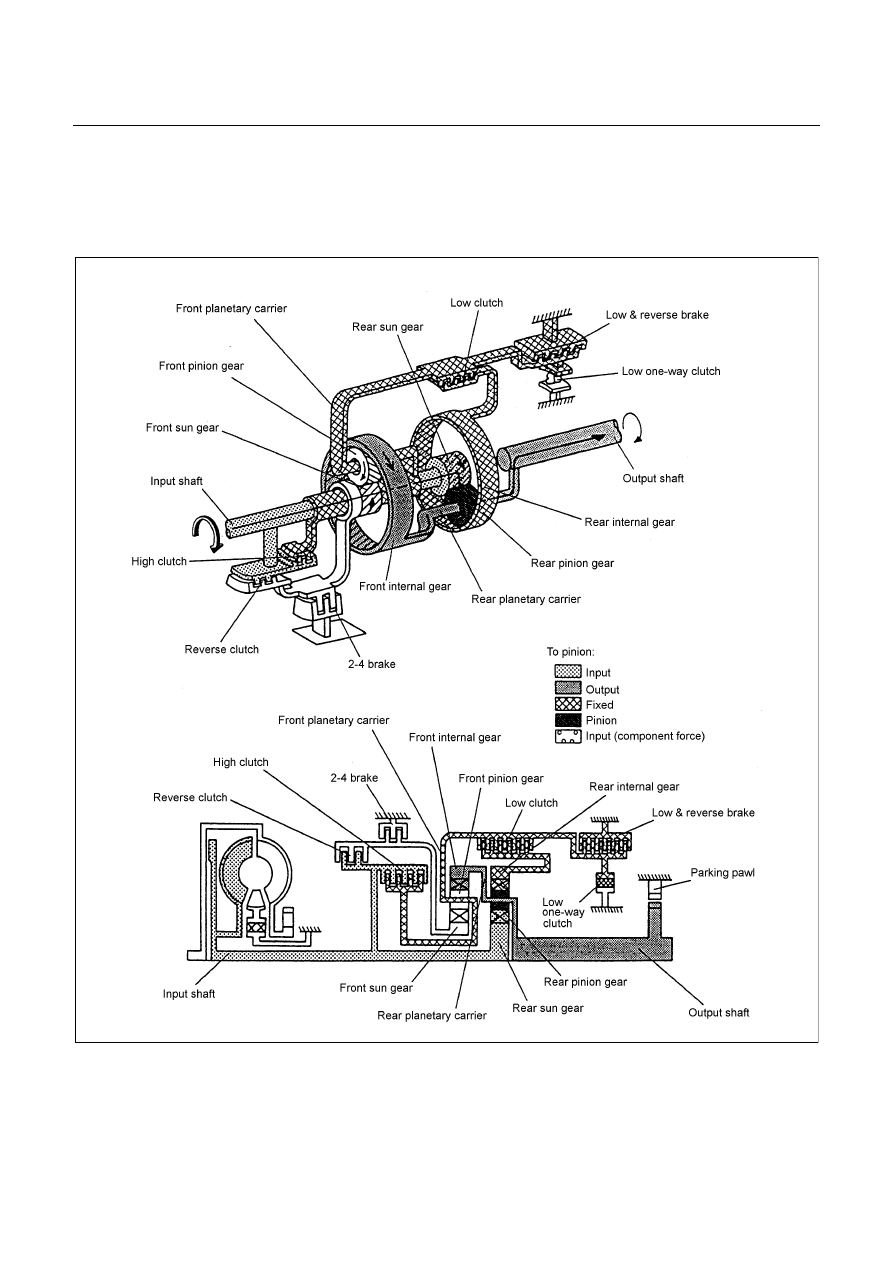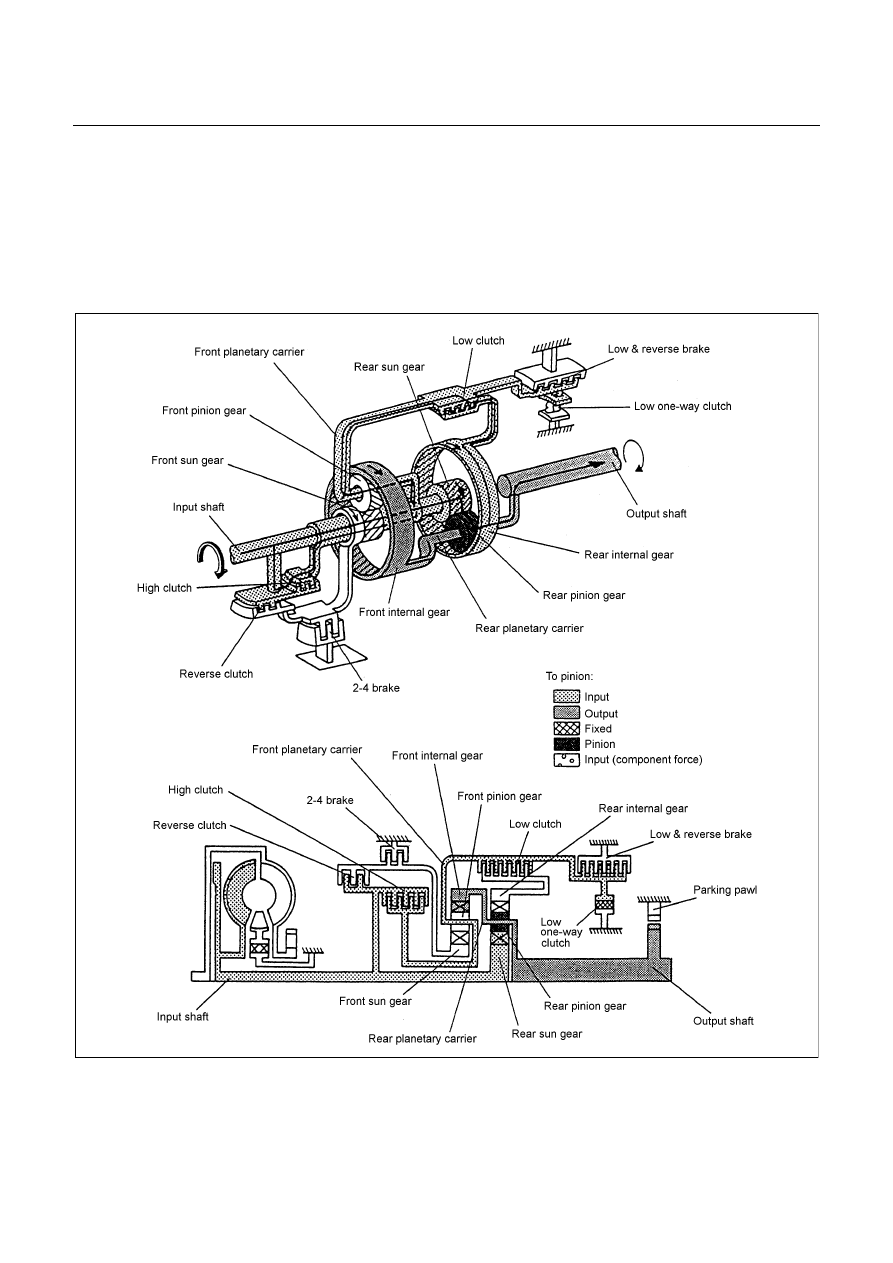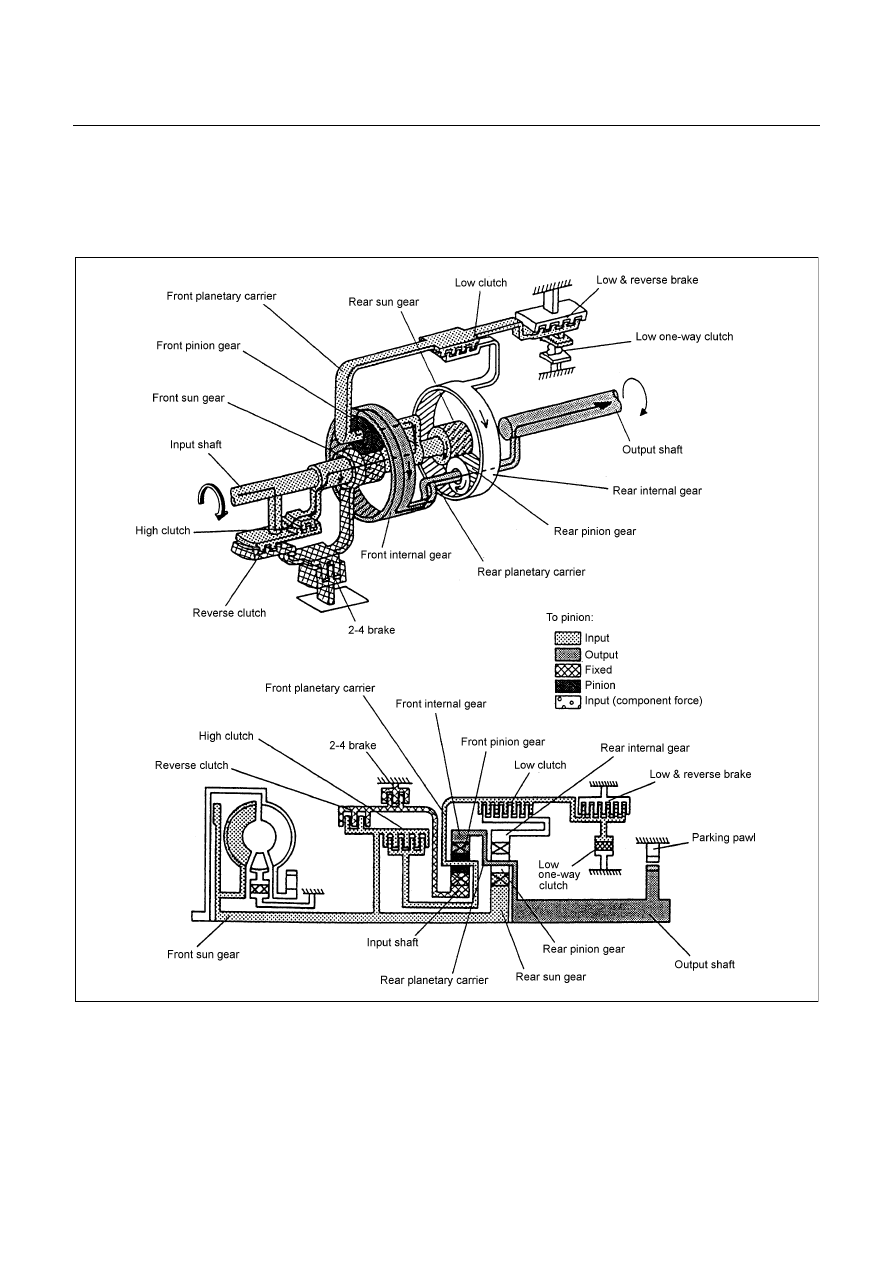Isuzu D-Max / Isuzu Rodeo (TFR/TFS). Manual — part 1845

7A1-42 CONSTRUCTION AND FUNCTION
1st Gear in L Range
The basic mechanism is the same as in the D, 3, and 2 Range. To apply the engine brake, the low & reverse
brake is engaged to restrict the movement of the low one-way clutch.
When decelerating, since the rear internal gear is fixed, reverse torque from the drive shaft is transmitted to
the engine side so that the engine brake is applied.

CONSTRUCTION AND FUNCTION 7A1-43
2nd Gear in D, 3, 2 Range
The driving force from the input shaft is transmitted to the rear sun gear and reverse & high clutch drum. As
in the case of the 1st gear, since the low clutch is engaged, the movement of the rear internal gear is
restricted. Since the 2-4 brake is engaged, the front sun gear is fixed. As a result, movement of the rear
internal gear is restricted, and the driving force transmitted to the rear sun gear rotates the rear planetary
carrier clockwise, and is decreased and output. The rotating speed of the rear planetary carrier is increased
as the rear internal gear rotates.
When decelerating, the engine brake is applied.

7A1-44 CONSTRUCTION AND FUNCTION
3rd Gear in D, 3 Range
The driving force from the input shaft is transmitted to the rear sun gear and reverse & high clutch drum. As
in the case of the 1st gear and 2nd gear, since the low clutch is engaged, the movement of the rear internal
gear is restricted. Since the high clutch is engaged, the driving force from the input shaft is directly
transmitted to the rear internal gear. As a result, the rpm of the rear sun gear and the rear internal gear
becomes the same as that of the input shaft so that the rear pinion gear rotates not independently but
together with the rear sun gear and rear internal gear.
When decelerating, the engine brake is applied.

CONSTRUCTION AND FUNCTION 7A1-45
4th Gear (O/D) in D Range
The driving force from the input shaft is transmitted to the rear sun gear and reverse & high clutch drum.
Since the 2-4 brake is engaged, the front sun gear is fixed. As a result, the front pinion gear rotates both
itself and together with other gears clockwise. This rotation increases the speed of rotation of the front
internal gear and is transmitted to the output shaft.

Нет комментариевНе стесняйтесь поделиться с нами вашим ценным мнением.
Текст